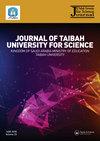红景天对味精引起的肝毒性的改善作用:炎症、氧化应激和细胞凋亡相关标志物的作用
IF 2.8
3区 综合性期刊
Q2 MULTIDISCIPLINARY SCIENCES
引用次数: 0
摘要
本研究考察了红景天提取物对味精引起的肝毒性标志物的保护作用。味精诱导肝脏应激生物标志物显著增加。GSH、过氧化氢酶和SOD水平显著下降,同时IL-1β、IL-6和TNF-α水平显著升高。肝细胞损伤,caspase-3表达上调,Bcl-2表达降低。补充红景天后,味精的肝毒性作用正常化。玫瑰花下调caspase-3,上调HO-1和Nrf2 mRNA的表达。玫瑰花可调节与肝毒性相关的COX-2、TGF-β1和NFkB基因的免疫反应性。玫瑰花提取物使味精引起的组织病理学改变正常化,并恢复肝脏结构。玫瑰提取物具有抗细胞凋亡、抗氧化和抗炎作用。总之,玫瑰花提取物是一种很有前景的抗味精肝毒性药物,它通过调节炎症、氧化应激和细胞凋亡相关标志物的不同信号通路起作用。本文章由计算机程序翻译,如有差异,请以英文原文为准。
Ameliorative impacts of Rhodiola rosea against hepatic toxicity induced by monosodium glutamate: role of inflammation-, oxidative-stress-, and apoptosis-associated markers
Current study examined the protective impact of Rhodiola rosea (R. rosea) extract on hepatic toxicity markers caused by MSG. MSG induced significant increases in hepatic stress biomarkers. There were significant declines in GSH, catalase and SOD levels, which were accompanied by substantial elevations in IL-1β, IL-6, and TNF-α. There was hepatic cellular damage, and upregulation of caspase-3 and a decrease in Bcl-2 expression. The hepatotoxic impacts of MSG were normalized by Rhodiola supplementation. R. rosea downregulated caspase-3 and upregulated HO-1 and Nrf2 mRNA expression. R. rosea regulated the immunoreactivity of COX-2, TGF-β1, and NFkB genes associated with hepatic toxicity. R. rosea extract normalized histopathological changes induced by MSG and restored hepatic architecture. R. rosea extract exhibited anti-apoptotic, antioxidant, and anti-inflammatory properties. In conclusion, R. rosea extract is a promising medication against hepatic toxicity induced by MSG, which works by regulating the different signaling pathways of inflammation-, oxidative-stress-, and apoptosis-associated markers.
求助全文
通过发布文献求助,成功后即可免费获取论文全文。
去求助
来源期刊

Journal of Taibah University for Science
MULTIDISCIPLINARY SCIENCES-
CiteScore
6.60
自引率
6.10%
发文量
102
审稿时长
19 weeks
期刊介绍:
Journal of Taibah University for Science (JTUSCI) is an international scientific journal for the basic sciences. This journal is produced and published by Taibah University, Madinah, Kingdom of Saudi Arabia. The scope of the journal is to publish peer reviewed research papers, short communications, reviews and comments as well as the scientific conference proceedings in a special issue. The emphasis is on biology, geology, chemistry, environmental control, mathematics and statistics, nanotechnology, physics, and related fields of study. The JTUSCI now quarterly publishes four issues (Jan, Apr, Jul and Oct) per year. Submission to the Journal is based on the understanding that the article has not been previously published in any other form and is not considered for publication elsewhere.
 求助内容:
求助内容: 应助结果提醒方式:
应助结果提醒方式:


